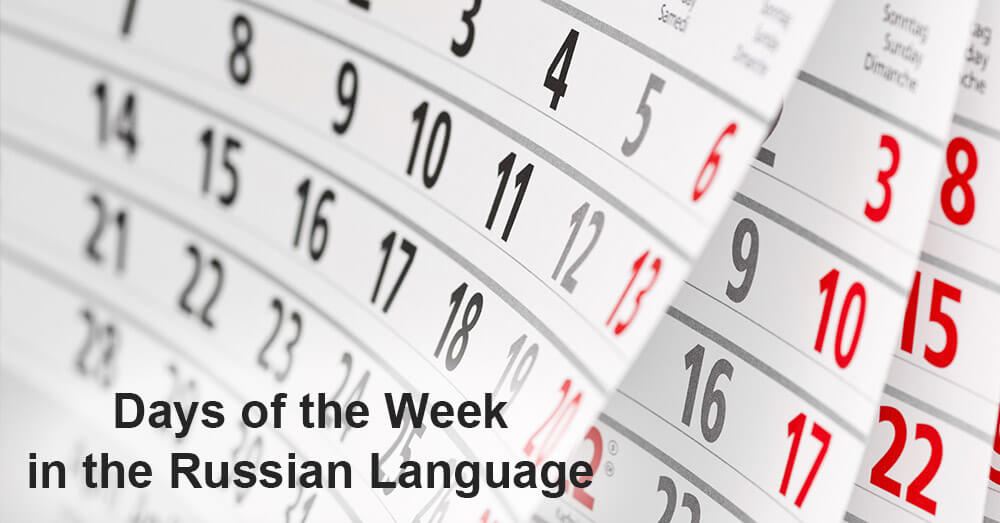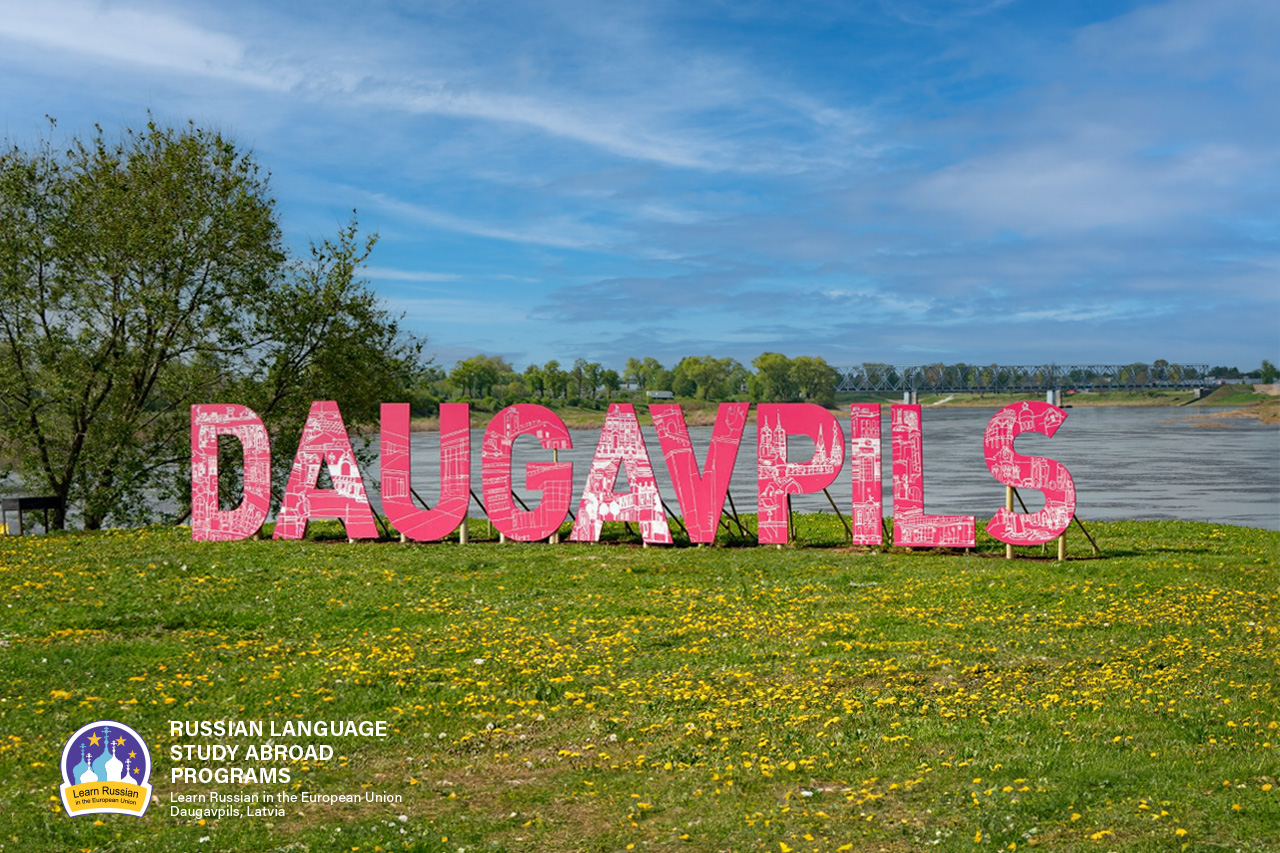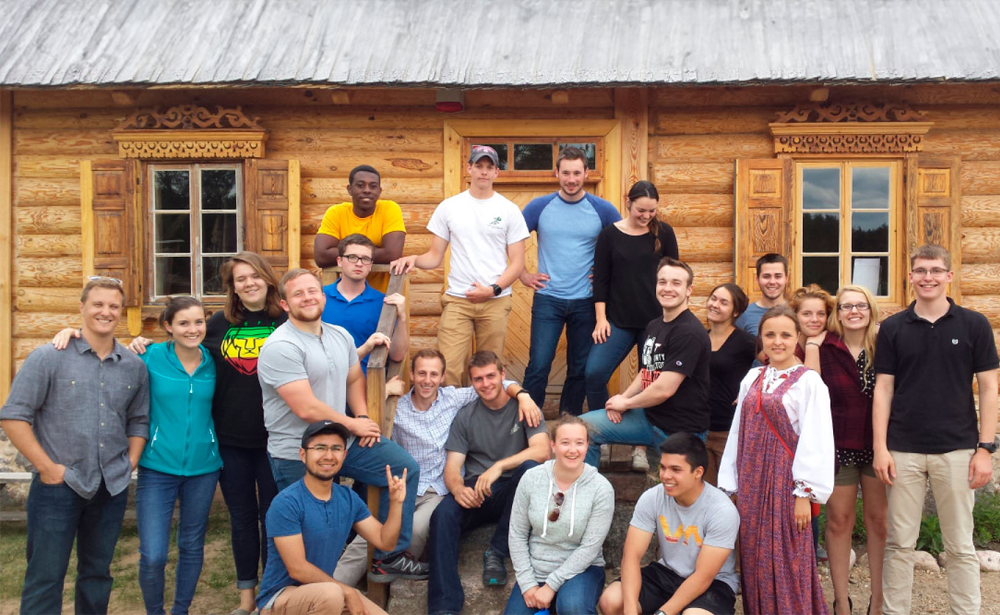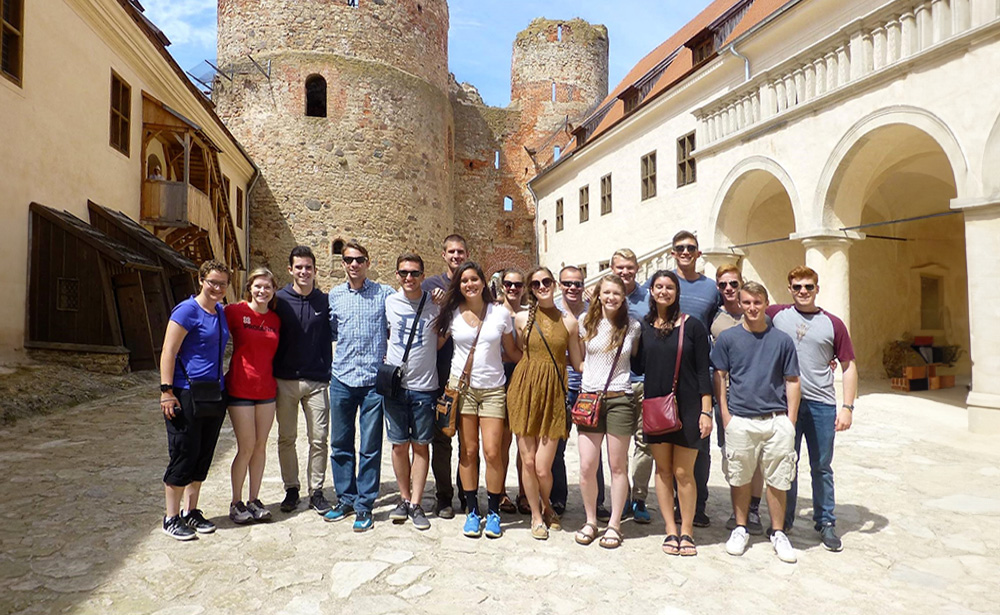Days of the Week in the Russian Language

Today we are going to tell you about the names of the days of the week in the Russian language and to analyze their origin. Let’s have a closer look at the days of the week:
Similar to other world languages, Russian has 7 days of the week, 2 of which are called “Выходными” [Vykhadnye] Weekend, but the rest of the days when people work, study, or are busy doing some other things are called “Будние дни” [Budnie dni] weekdays or “Будни” [Budni]. Every work day [rah-BOH-cheey dyehn’] has its own original and interesting name which appeared in the past and still exists nowadays.
Sunday
Воскресенье [vuhs-kree-SYEHN’-yeh] Sunday
In ancient times, in Russia the week used to have a completely different name – “Седмица” [sedmitsa], which is originated from the word “семь” [sem’] seven, but only one day of the week -воскресенье (Sunday) was called “неделя” [nee-DYEH-lyah] week , as it was a custom to do nothing (НЕ ДЕЛать )on this day. Therefore, the word “неделя” originated from this verb. After Russia had become a Christian state, and Russians started to celebrate Easter, this day was called “воскресенье” which means “raising” , “resurrection”.

Monday
Понедельник [puh-nee-DYEHL’-neek] Monday
The days were counted from Sunday, therefore “понедельник” [puh-nee-DYEHL’-neek]Monday was the first day after “ничего не делать”.
Tuesday
Вторник [FTOHR-neek] Tuesday
The second day after Sunday was “вторник” [FTOHR-neek] Tuesday. The word originated from the Old-Slavic word which means “second”.
Wednesday
Среда [sree-DAH] Wednesday
Wednesday got its name because it is in the “в середине” [siridina] middle of the week or from the word “сердце”[sertse] heart.

Thursday
Четверг [cheet-VYEHRK] Thursday
Thursday is the fourth day after Sunday and it is originated from the word “четыре” [chityri] four.
Friday
Пятница [PYAHT-nee-tsuh] Friday
Friday is the fifth day after Sunday and it is originated from the word “пять” [pyat’] five.
Saturday
Суббота [soo-BOH-tuh] Saturday
The name “субботa” originated from the Jewish word “sabbath” which means “покой” [pakoj] rest.

What prepositions do Russians use with the names of the days of the week?
Russians usually use the preposition “В”/”ON” when they want to say that they are going to do something or to go somewhere on this day. For example: Я пойду в кино в воскресенье, а на работу – в понедельник. [Ya pajdu f kino f vaskrisen’e, a na rabotu – v panidel’nik] I will go to the cinema on Sunday, but to work – on Monday.
It should be mentioned that all days of the week are used with the preposition “В”, except Tuesday. This day of the week is used with the preposition “Во”, for example: Во вторник будет жарко [Fa ftornik budet zharka] It is going to be hot on Tuesday.
Prepositions “к” or “ко” (for Tuesday) are also used with the days of the week.
For example:
Я выполню эту работу ко вторнику [Ya vypalnyu ehtu rabotu ka ftorniku] I will do this work by Tuesday.
К субботе я приготовлю кексы [K subote ya prigatovlyu kyeksi] I am going to make cupcakes by Saturday.

If you need to ask what day of the week it is today, you can use the phrase:
Какой сегодня день? [kah-KOI see-VOHD-nyah dyehn’].
Here are some more words and phrases that might be useful when you are going to speak about your schedule, calendar events, yesterday, today, or tomorrow:
- Завтра [ZAHF-trah] tomorrow
- Сегодня [see-VOHD-nyuh] today
- Вчера [fcheeh-RAH] yesterday
- На этой неделе [nah EH-tuy nee-DYEHL-yee] this week
- На следующей неделе [nah SLYED-oo-yoo-shchee nee-DYEHL-yeh] next week
- На прошлой неделе [nah PROSH-luy nee-DYEHL-yee] last week
We hope you have found this article interesting and now you know the names and origin of the days of the week in the Russian language. Russian language is fun to learn!
You may be interested

Why do people speak Russian in Daugavpils?
As it seems to us, Daugavpils is the best place to learn Russian now, because our city is situated in the EU and NATO, but at the same time 90% of the city’s population speak Russian at home.

ЭТЮД О ДВИНСКЕ
Etude on Dvinsk by F.Fedorov
The Baltic region is one of the most catastrophe prone regions of the 2nd millennium, especially its second part; it is the centre of attraction of ‘geopolitical’ interests of the European world. Probably the most tragic fate has befallen to the eastern part of the present Latvia and its multi-titled town of Dinaburg – Dvinsk – Daugavpils. During its 730 years long history, the town went through five rather autonomous periods of development, five different lives (German, Polish, Russian, Latvian, Soviet), and at the beginning of the 1990s it entered into the 6th period.
The history of Dinaburg – Dvinsk – Daugavpils is the history of five attempts by the town to begin its life anew; and this is determined not only by the fact that the town was four times burned down and had to start life from scratch, but first and foremost because each of these periods was characterized by a total change of ethnos and the socio-cultural field.
The present article deals with the cultural space of the town in one of the most efficient periods of its development – from the 1860s till World War I.








